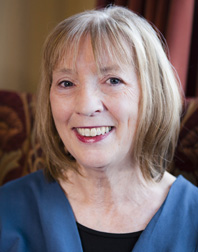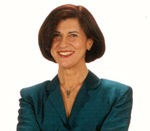Meeting the Needs of Parents Pregnant and Parenting after a Loss
We’re committed to spread information to parents that the unborn baby’s personality and development can be impacted during pregnancy. Today we have solid research to support that the mother’s stress during pregnancy may indeed impact a child’s personality. Thus, an intervention to help parents know ways to engage with their unborn baby, whether in a low risk pregnancy or one that follows a perinatal loss is an important goal. Our book outlines specific interventions to use at each stage of pregnancy that facilitates prenatal parenting to connect with the unborn baby. We hope that you find it useful resource, and we thank you for your work with bereaved families.
Character Strengths Interventions: A Field Guide for Practitioners
I read, I review. I rarely comment. The difference? I offer glimpses into a book, noting
the content, the writing style, the potential impact on a reader, often sharing my personal
reactions to the material with a familiar first person writing style. An academic commentary
proposes both a different tone and approach. One that offered a challenge until I realized
that a commentary is just that, a personal reaction pinpointing part of the material that
potentially impacts either me personally or my field of study and interest, in this instance
psychotherapeutic interventions that offer clients and ourselves a way forward.
I read Ryan Niemiec’s newest publication, Character Strengths Interventions: A Field
Guide for Practitioners, with no background experience in positive psychology, no concept
of what character strengths are or how to integrate them into my life or my professional
work. I quickly learned that character strengths are positive traits that are core to our
being—our identity—and our doing, aka our behavior (pg. 2).
Awakening Clinical Intuition
For me, writing is like a river that runs through my veins, coursing more deeply than any other current in my life. Along with being a clinical psychologist and artist, I am also a wife and mother. I used to feel guilty about the intensity of my preoccupation with writing, as if this meant I didn’t love my husband and children enough. I’ve come to realize the falsity of that fear. If I don’t take care of myself fully first, how can I possibly serve others? This realization has freed me up. I now experience my personal history as marked by twin births. The birth of my body occurred more than 50 years ago, signaling my physical arrival on Earth. The birth of my spirit occurs in an ongoing fashion, through my writings, outside of time. This second birth feels like a successive awakening, an integration of intellect, passion, and spirit. This is the realm where I cobble together meaning on the grandest scale.
Contemplative Psychotherapy Essentials
“I never started out to write any of my three books,” Karen Kissel Wegela says with a hint of laughter, a sense of humility. She is present, personal. She shares her own journey in person and in her books. And no, you don’t need to be Buddhist to experience contemplative psychotherapy.
Turning The Tables: An Interview with Helayne Waldman ED.D., M.S., CNE
When her father was diagnosed with small-cell lung cancer in 1994, Helayne Waldman knew it was lethal. She researched ways to support his health and did the best she could considering she was a layperson, not a practicing nutritionist. A single mom at the time, Waldman worked as a trainer in field-readiness and marketing for a database firm. Her father died in four months, planting a seed that Waldman later nurtured into a healing profession for people living with and dying from cancer.
Reflections on The Handbook of Body Psychotherapy and Somatic Psychology
This book was composed by Gustl Marlock and myself to give a face to body psychotherapy as a whole. It is supposed to help mentally organize the scattered field and inform psychotherapists of all schools about its width and length, as well of its long history and its many methodologies. The idea is that this cannot be done by one author alone because nobody can correctly and fairly cover the contributions of so many diverse approaches. It is for this reason that the book contains the voices of 82 competent representatives of the field from many different countries, among them some of its most highly esteemed originators and teachers. They are meant to form the legs and arms, the trunk and the tail, the belly and the eyes of the now fully grown elephant named Body Psychotherapy.
Embodied Being
Somatics is both a science and a philosophy but it also includes holistic manual therapy as a practical application of its principles. Because it is a new inquiry into the nature of the body, it demands new eyes and bold forward thinking investigators who have freed themselves from the artificial divisions of the past.
Confessions of a Clinician
I never think of myself as a writer, really. Even though there are always books and chapters and articles and case notes flying about. For me, writing is a part of a process. Take this book, for example, “Surviving the Early Years: The Importance of Early Intervention with Babies at Risk”. The title was important...a way of referencing the baby, the parents and the professional. At the same time, I wanted to express an important dynamic...the unplanned emotional-level plunge into simple survival that having a special-needs child can bring about OR – from the child’s point of view – having parents who aren’t coping well. Because I’m really a clinician at heart, I didn’t want to write another feel-good/self-help book about early parenthood reverie. The book that needed to be written, I thought, was about the grim reality of genetics, family history, chance and circumstance.
A Reflection on the Writing of Subcutaneous, Subcortical, Subconscious and Subterranean: The Most Toxic...
When Dennis first approached me to write a chapter on ‘Deep Play’, I experienced a gamut of emotions from my initial feelings of delight and I must admit some pride, which very quickly gave way to apprehension and concern that my writing style may give me away as being neither an academic, nor a story-teller. Once I managed to recognise these feelings as my own childhood scripts I was able to harness them and regulate my growing unease, which allowed the feelings to abate; this was old-stuff. Relieved of these constraints I set about the task for which I had been assigned; to consider the notion of ‘Deep Play’.
Going to the Prom
Honestly, I never set out to become an author. In fact, as I sit here eighteen years after my first book was published, I’m still not sure how it all happened. One thing led to another and the rest, as they say, is history.














